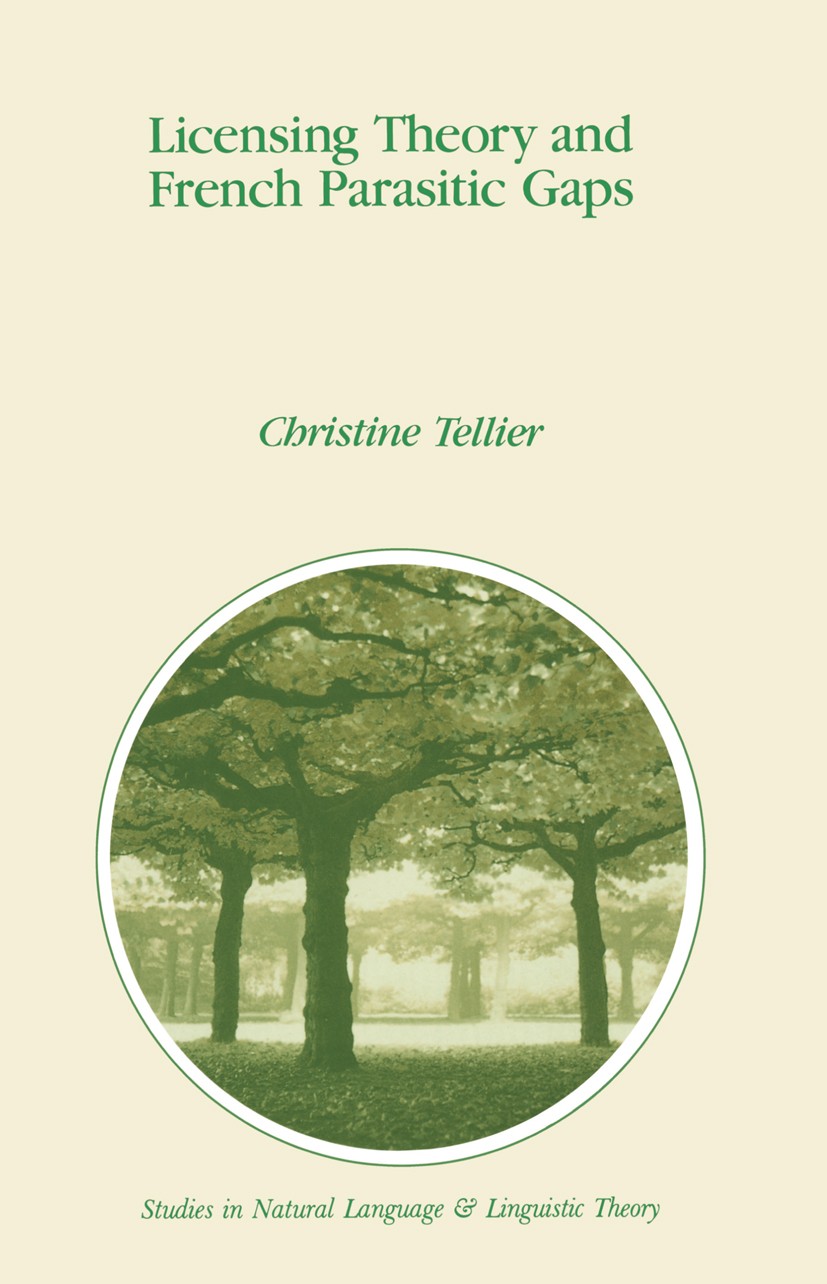| 書目名稱 | Licensing Theory and French Parasitic Gaps |
| 編輯 | Christine Tellier |
| 視頻video | http://file.papertrans.cn/586/585632/585632.mp4 |
| 叢書名稱 | Studies in Natural Language and Linguistic Theory |
| 圖書封面 |  |
| 描述 | The study of parasitic gap constructions (e. g. these are the reports; which you corrected _; before filing _i) has been a very lively area of research over the last decade. The impetus behind this lies mostly in the margi- nality of the construction. Clearly, the intuitions that native speakers have about parasitic gaps do not stem from direct instruction; hence, it is reasoned, such knowledge follows from the restrictions imposed by Universal Grammar. Furthermore, it is unlikely that any principle of Universal Grammar refers specifically to parasitic gap constructions; their syntactic and interpretive properties must instead follow entirely from independent principles. My own interest in the phenomenon was sparked a few years ago, when, in a novel, I came across a sentence like the following: Chait un armateur; dont Ie prestige _; reposait largement sur la fortune _;, ‘he was a shipbuilder of whom the prestige was largely based on the wealth‘. As the indices indicate, the interpretation of the French sentence is un- ambiguous: both the prestige and the wealth necessarily pertain to the same individual. In this aspect, the sentence much resembles the English parasitic gap construc |
| 出版日期 | Book 1991 |
| 關(guān)鍵詞 | English; Index; aspect; complements; grammar; noun phrase; nouns; preposition; pronouns; subject; syntactic |
| 版次 | 1 |
| doi | https://doi.org/10.1007/978-94-011-3596-2 |
| isbn_softcover | 978-0-7923-1323-6 |
| isbn_ebook | 978-94-011-3596-2Series ISSN 0924-4670 Series E-ISSN 2215-0358 |
| issn_series | 0924-4670 |
| copyright | Kluwer Academic Publishers 1991 |
 |Archiver|手機(jī)版|小黑屋|
派博傳思國際
( 京公網(wǎng)安備110108008328)
GMT+8, 2025-10-11 22:07
|Archiver|手機(jī)版|小黑屋|
派博傳思國際
( 京公網(wǎng)安備110108008328)
GMT+8, 2025-10-11 22:07


